8 Best Foods to Eat Before and After Getting the COVID Vaccine

The much-anticipated COVID-19 vaccine rollout is underway—so far, over 30 million Americans have been inoculated with at least one dose. While there are no official guidelines for what to eat before (or after) getting this vaccine, making smart and thoughtful food choices is always a good idea… and maybe now more than ever.
"Regardless of what vaccine you're getting, you'll want to set your health up for success by eating a clean, whole-foods-based diet," says Dr. Will Cole, leading functional-medicine expert, IFMCP, DNM, DC, and author of the upcoming book Intuitive Fasting.
While many people experience no side effects to the vaccine, some report mild reactions like aches, fatigue, headache, chills, and sometimes a fever. If you experience any effects, "you'll want to soothe the inflammatory immune response," explains Dr. Cole, who also authored The Inflammation Spectrum. A large portion of your immune system resides in your microbiome, so side effects or not, "focus on foods that are going to be gentler on your gut," Dr. Cole suggests.
Since only certain groups are eligible in the first few phases (Dr. Fauci says this group is in particular need), you may need to wait your turn. But you can use the time to get familiar with these anti-inflammatory and gut-healthy foods. And for more healthy eating tips, make sure to check out the 7 healthiest foods to eat right now.
Bone Broth
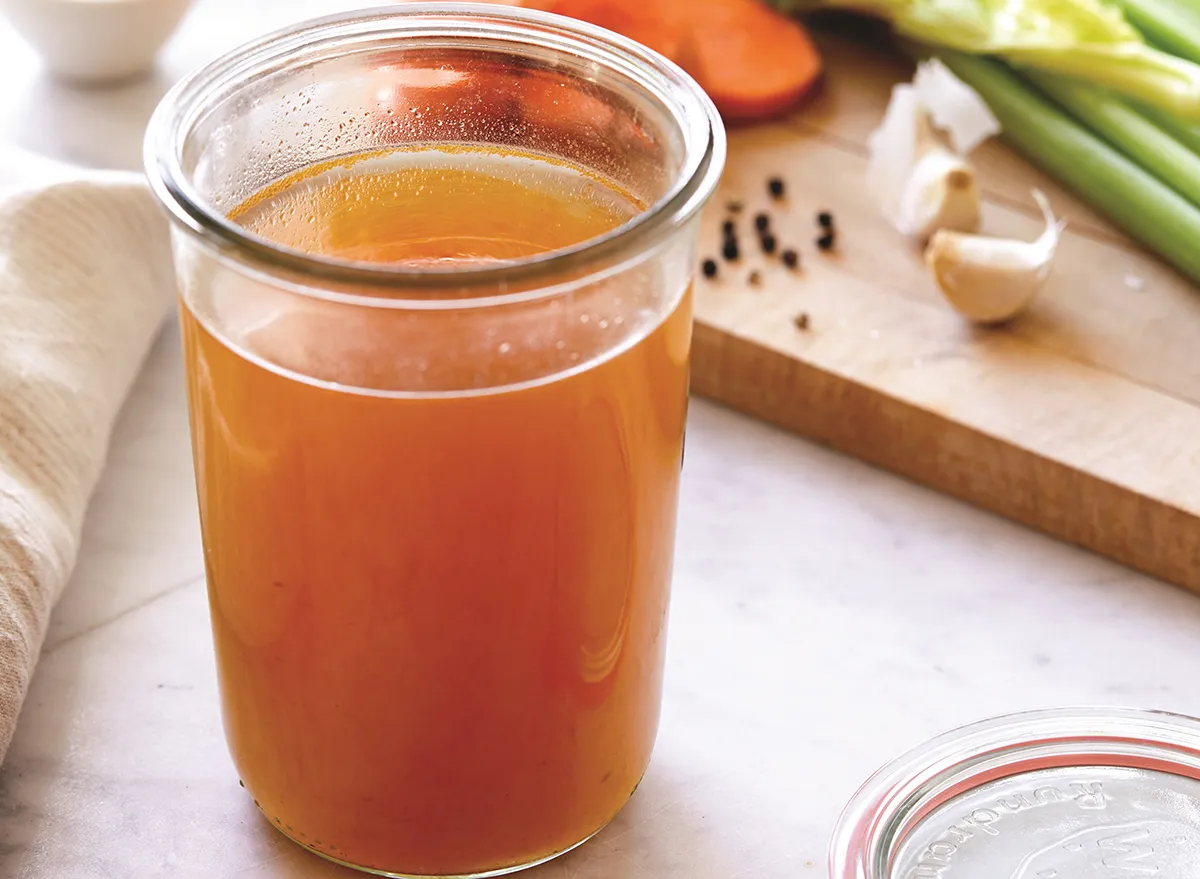
There's a reason people advise eating chicken noodle soup when you're sick—not only does it warm you up, but the broth can truly be healing. Bone broth, made with—you guessed it—beef, chicken, or turkey bones, has high levels of collagen which helps repair the lining of the gut. Plus, you don't need a soup to gain the benefits of bone broth—simply sip it like a cup of tea.
Looking to feed your gut? Here are 20 Best Foods for Gut Health.
Green Veggies
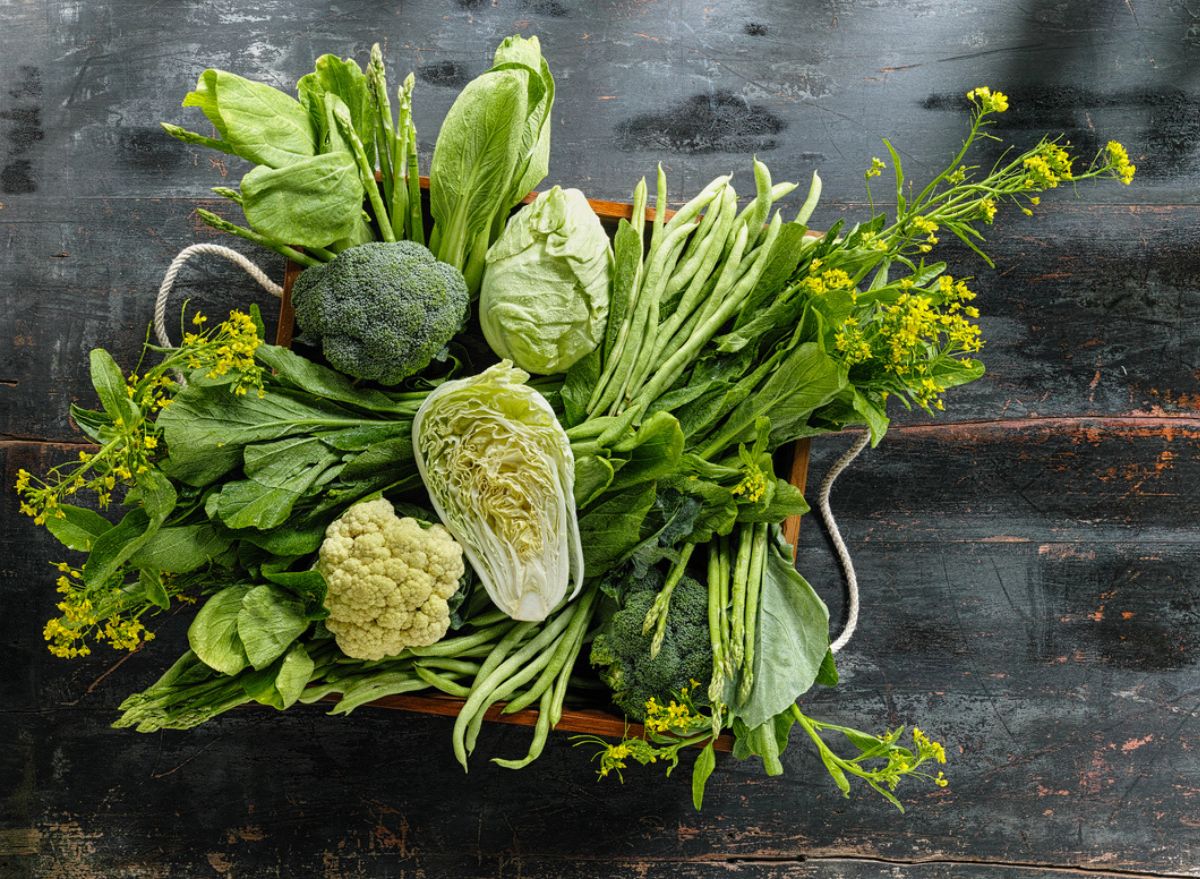
We hear "eat your greens" all the time—and for good reason! Green veggies (such as spinach, kale, collards, and broccoli) all have high levels of antioxidants which help combat free radicals and fight inflammation in the body. Broccoli, for example, contains the antioxidant sulforaphane, which helps protect against oxidative stress and combats inflammation. One more note: Cooking your veggies may increase nutrient absorption and be easier on your digestion.
Garlic and Onions
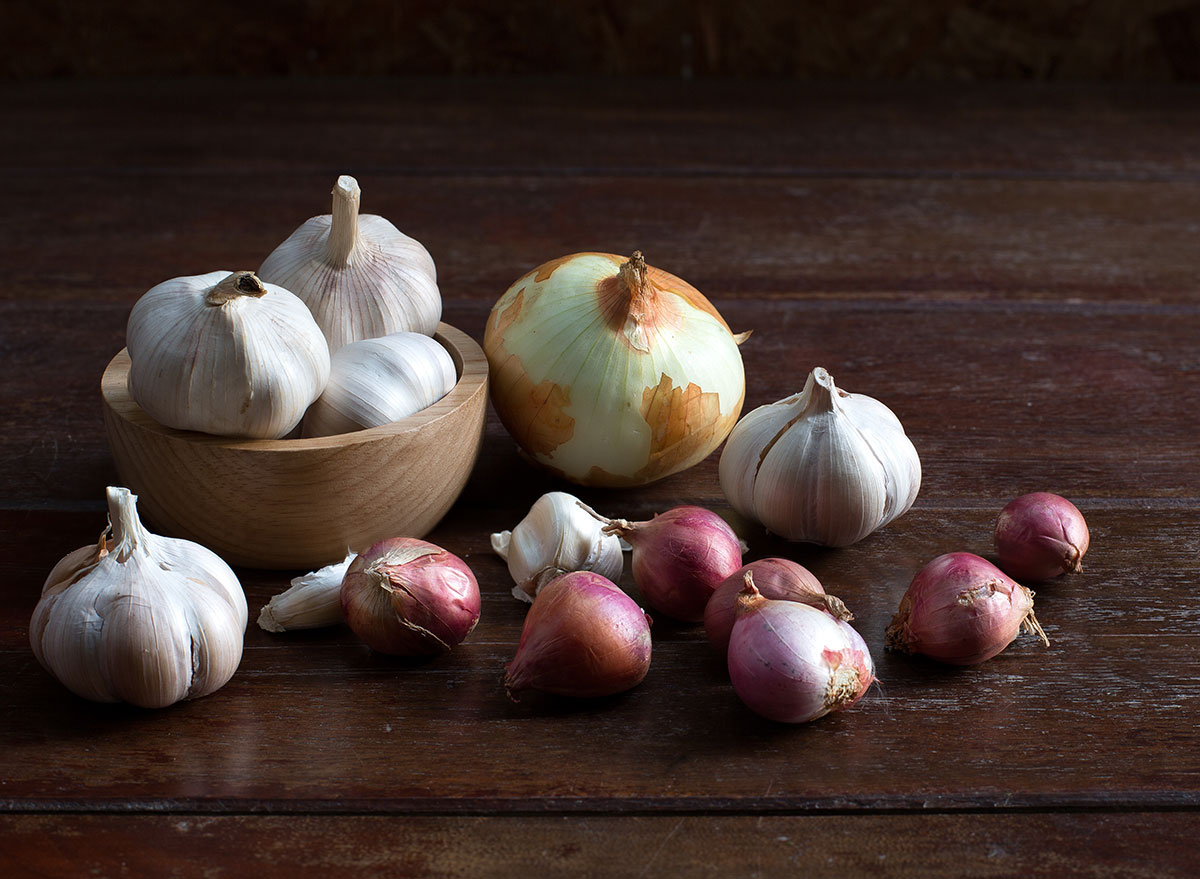
Garlic and onions are high in prebiotics, which help feed the good bacteria in your gut. And a happy gut means a healthier you! For more prebiotic-rich foods, check out this list. (Amazingly, chocolate is one of them.)
Soups and Stews
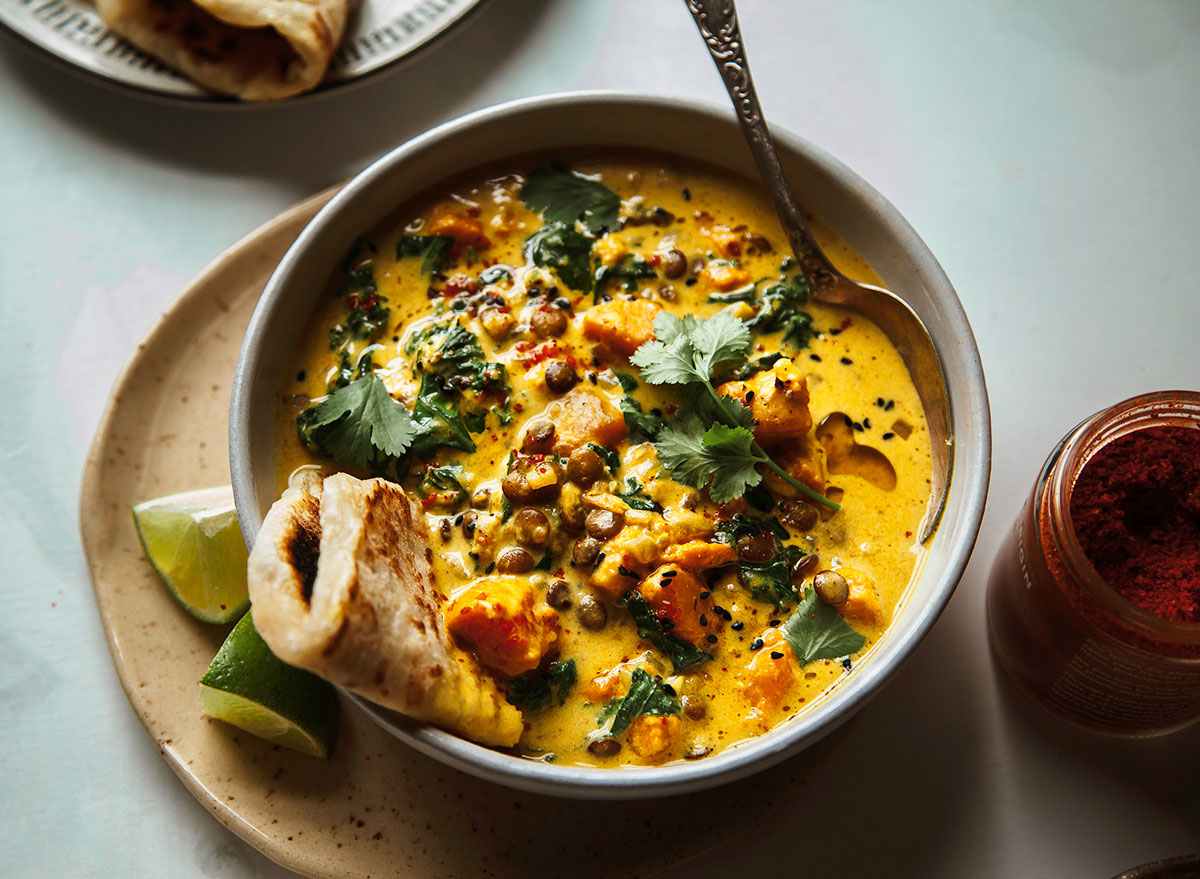
To nurture and support your immune response (which originates in your gut), Dr. Cole reminds us, you'll want to focus on healing foods like soups and stews. Better yet, make it with reparative bone broth.
Need some inspiration? Here are 20 Best Slow Cooker Soup Recipes.
Green Tea

This simple, inflammation-fighting elixir boasts high levels of the plant compound EGCG (or epigallocatechin-3-gallate), which works as a powerful antioxidant, protecting cells from damage caused by free radicals. That damage creates inflammation, so a warm cup of tea aids your body at the cellular level. And the ritual of drinking tea can also soothe the soul.
Wild-Caught Salmon
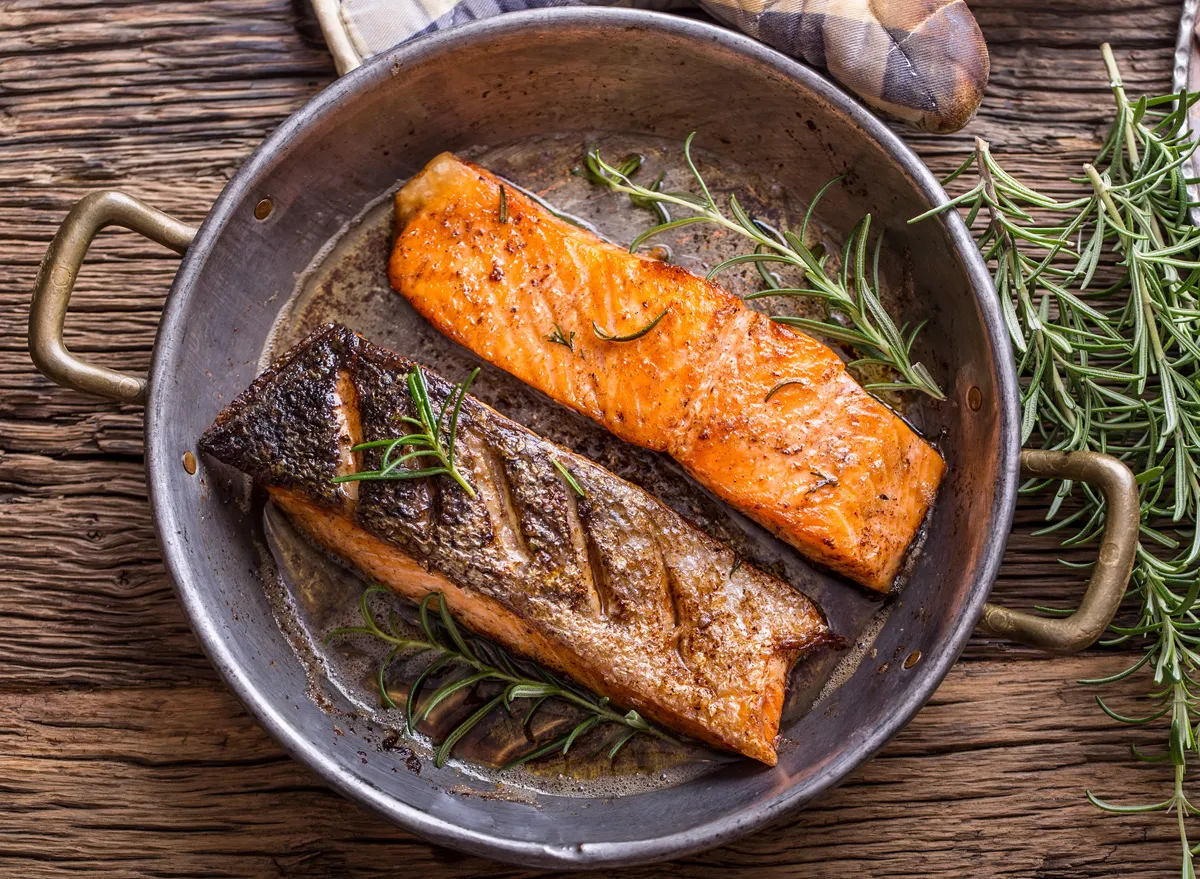
Salmon is a great source of omega-3 fatty acids, which your body breaks down into resolvins and pectins—two compounds that help decrease inflammation. Unfortunately, not all salmon is created equal. These facts about farmed salmon may shock you. Luckily, wild salmon has many of the benefits (likely omega-3s) without the disadvantages that come from farmed-fish.
Looking for ways to add salmon to your plate? Here are 21+ Best Healthy Salmon Recipes.
Turmeric
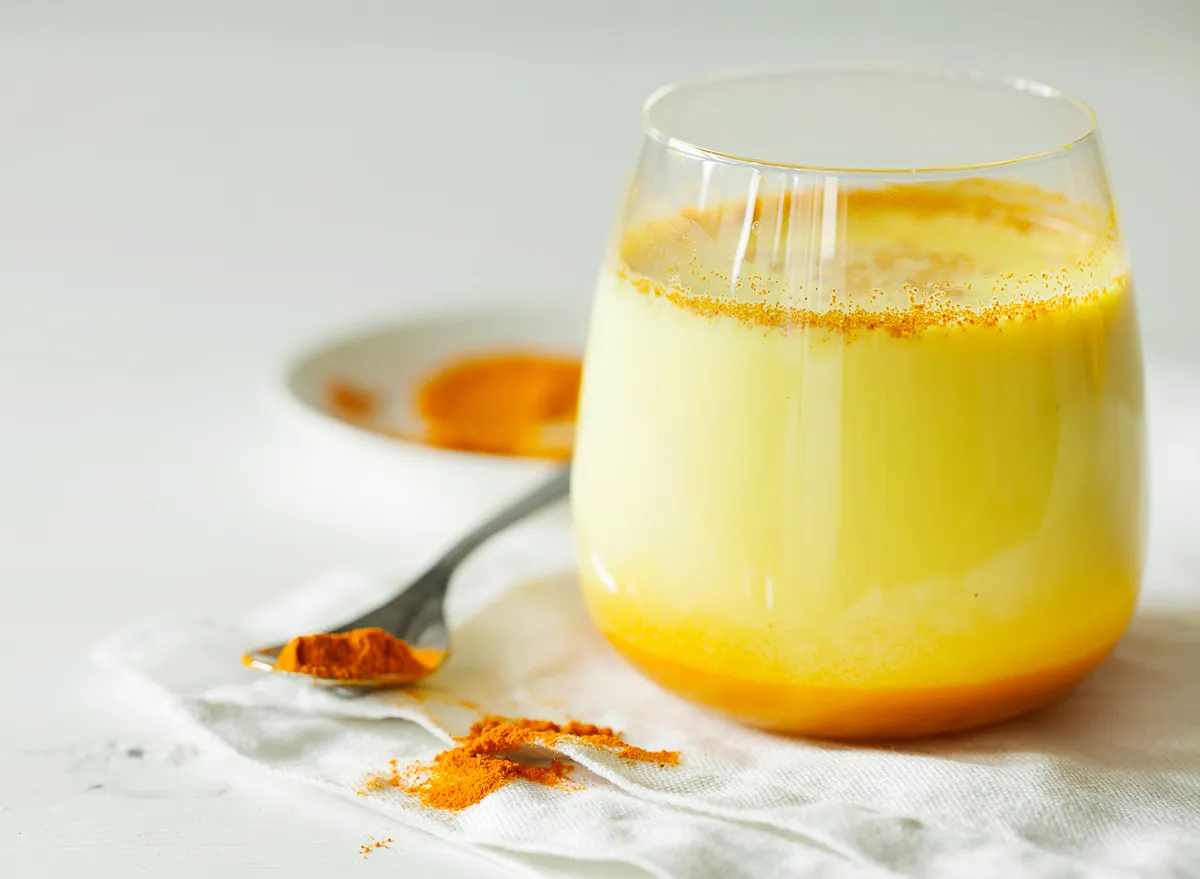
This bright orange root may be the ultimate superfood. Studies show that curcumin (the active ingredient in turmeric) not only fights inflammation but also assists brain function, protecting the hippocampus against stress."Turmeric is my go-to anti-stress food," Dr. Uma Naidoo, MD, Harvard-trained nutritional psychiatrist, professional chef, nutrition specialist and author of "This Is Your Brain on Food," told THE WELL. "I add it to smoothies, salads, soups, and even tea." A pinch of black pepper or healthy fat increases the bioavailability of curcumin.
Blueberries

Blueberries are another inflammation-fighting favorite of Dr. Naidoo (who didn't specifically recommend these blue jewels for post-vaccine meals). Not only are they a great source of antioxidants, but research also suggests that they can increase serotonin levels (the hormone responsible for balancing your mood). Top your unsweetened yogurt with a handful of berries and you'll have an antioxidant-packed, probiotic-rich combo!
What to Avoid: Inflammatory Foods
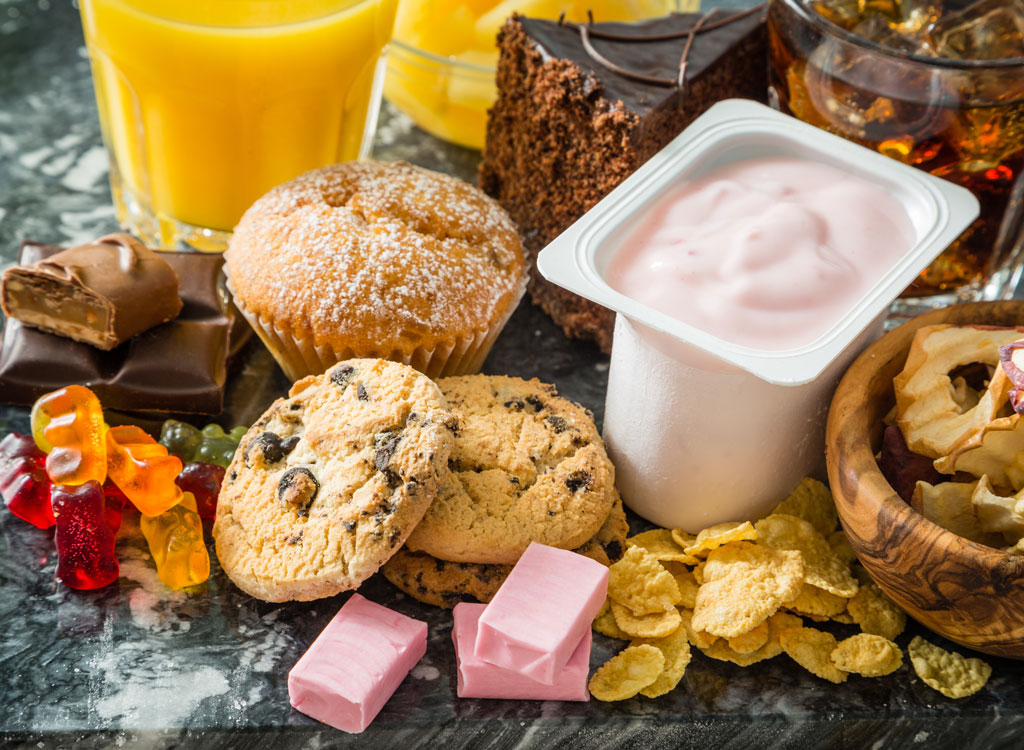
"Since vaccines amp up your immune response, you'll want to avoid any foods that you know cause an inflammatory immune response for you—including foods you may have sensitivities toward," says Dr. Cole. Some common inflammation-inducing culprits? Sugar, refined flour, vegetable oils, dairy, and artificial sweeteners—to name a few. But consider steering clear of this whole list, at least for a bit.
For more healthy eating news, sign up for our newsletter!








